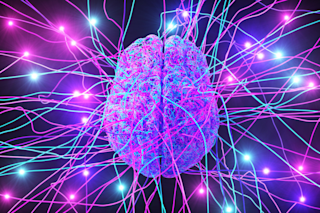Scientists know that conditions early in life play a large role in the development of a healthy brain. Different organisms have differing needs that must be met during those formative first weeks, but all brains wire themselves to their environments during this time. Humans, as hyper-social creatures, require physical touch and communication, for example, among other nutritional and environmental necessities.
But if those conditions deviate from what’s physiologically required for healthy development, certain neurological pathologies can manifest later in life. In a new study, neuroscientists investigated brain development in newborn mice and found an unexpected relationship between two types of brain cells previously linked to adult psychiatric conditions such as epilepsy, schizophrenia and autism.
Chandelier cells lie in the cortex: the outermost region of the brain that’s involved in an array of high-level, conscious cognitive functions such as memory, language and reasoning. Named for their resemblance to a sprawling chandelier, ...















